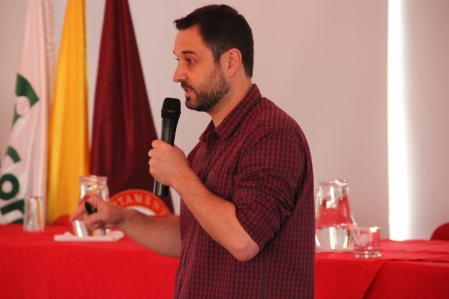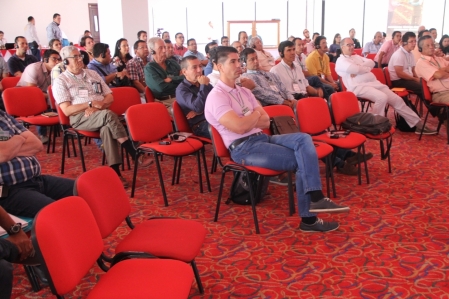Researcher from Univates presents project in international event
With a focus on rice cultivation and processing, the Colombian Confederation of Agricultural Research (Corpoica) organised the international seminar “Investigación y Oportunidades para el Cultivo de Arroz en Colombia”, which took place on the 22nd and 23rd of November in the city of Ibagué, Colombia. Professor and researcher from Univates Raul Sperotto participated in the seminar.
Sperotto was the representative of the Centre for Graduate Studies in Biotechnology to hold a lecture on phytophagous mites infestation in rice plants. “The same species of mite that are most widely found in rice plantations in Rio Grande do Sul are also spotted in rice cultivation in Colombia. So, as the objective of my research is to find out the physiological and molecular answers to rice in this condition, I had the chance to contribute to the discussions held in the event.
The purpose of the seminar was to search for strategies to improve quality and productivity of rice cultivation in Colombia and promote interaction between the attendees of different nationalities. Lecturers from Brazil, Mexico, France, Australia and Colombia attended the event.
Approximately 200 agronomy engineers, agricultural technicians and students attended the event. “Because I am a molecular biologist, I am directly involved in basic research, seeking to understand the molecular, biochemical and physiological processes in the way rice reacts to mites. My view on this issue is not of an engineer, since engineers work directly to improve the product. I find this exchanging of experiences particularly interesting because it gives us understanding of how knowledge produced in laboratory can be put into practice.“ - says Sperotto.
According to him, his project is supported by professors Walter Beys and Lucélia Santi (Univates), not to mention The Scripps Research Institute (USA), The University of Caxias do Sul (UCS), Federal University of Rio Grande do Sul (UFRGS) abd Federal University of Santa Maria (UFSM)
Written by: Artur Dullius

